The former Centro de Estudios Universitarios (CEU), currently called Fundación Universitaria San Pablo CEU, is a foundation for the development of education founded by the Catholic Propagandistic Association (ACdP).
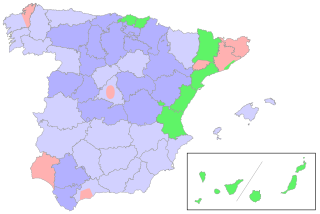
Elections to Spain's legislature, the Cortes Generales, were held on 19 November 1933 for all 473 seats in the unicameral Cortes of the Second Spanish Republic. Since the previous elections of 1931, a new constitution had been ratified, and the franchise extended to more than six million women. The governing Republican-Socialist coalition had fallen apart, with the Radical Republican Party beginning to support a newly united political right.
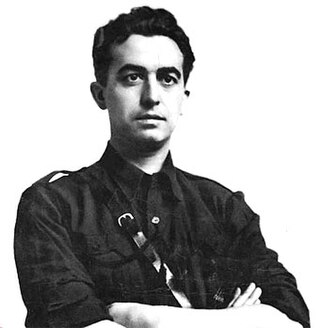
Onésimo Redondo Ortega was a Spanish Falangist politician. He founded the Juntas Castellanas de Actuación Hispánica, a political group that merged with Ramiro Ledesma's Juntas de Ofensiva Nacional-Sindicalista and José Antonio Primo de Rivera's Falange Española.

Ángel Herrera Oria was a Spanish journalist and Roman Catholic politician and later a cardinal. He established the Instituto Social León XIII to promote the social doctrine of the Roman Catholic Church and named it in honor of Pope Paul VI who elevated him to the rank of cardinal in 1965.

Alberto Martín-Artajo Álvarez was a legal technocrat for the Nationalist government during the Spanish Civil War and for the succeeding reign of caudillo Francisco Franco, and a Spanish Minister of Foreign Affairs. He served as the Foreign Minister from 1945 to 1957. Ideologically, he was not a Falangist, but a monarchist and a leader of the dynamic and powerful Catholic movement within the Francoist coalition. During the time of the Second Spanish Republic, he had been a member of the Spanish Confederation of the Autonomous Right.
Antonio Añoveros Ataún (1909–1987) was a Spanish Roman Catholic priest. He is known mostly as a protagonist of the so-called "Añoveros case", a 1974 episode which marked the gravest crisis in relations between Francoist Spain and the Church. Though during the Civil War he joined Carlists, he is recognized chiefly as one of the most liberal members of the Spanish hierarchy during the late Francoism; he is appreciated especially in the Basque realm.
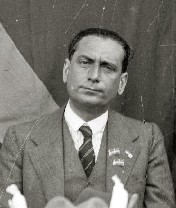
Manuel Carrasco i Formiguera, was a Spanish lawyer and Christian democrat Catalan nationalist politician. His execution, by order of Francisco Franco, provoked protests from Catholic journalists such as Joseph Ageorges, the President of the International Federation of Catholic Journalists. Ageorges wrote, "Even more than the death of the Duke of Enghien stained the memory of Napoleon, the death of Carrasco has stained the reputation of Franco". Such protests, in turn, provoked the anger of the Francoist press. His funeral in Paris on 27 April 1938 was attended by many notable people, including Joan Miró, Ossorio y Gallardo, Josep M. de Sagarra, Joaquim Ventalló and Jacques Maritain and his wife Raissa.

Popular Action, until 1932 National Action, was a Spanish Roman Catholic political party active during the Second Spanish Republic.

José Ibáñez Martín was a Spanish politician who was a long-serving member of the Cabinet of Francisco Franco. From 1939 to 1967 he also served as President of the Spanish National Research Council.
CEU San Pablo University is a private Catholic university located in Madrid, Spain, with Campuses in Moncloa, Madrid, right next to the Constitutional Court of Spain, and in Montepríncipe, Alcorcón. It is run by the Centro de Estudios Universitarios, established by Asociación Católica de Propagandistas (ACdP) with the goal of making positive changes in society through educational centres, which offer a model based on a holistic understanding of the human person and work in the public arena in defense of justice and human beings.
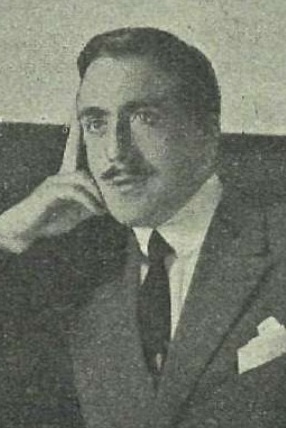
Marcelino Oreja Elósegui (1894–1934) was a Spanish entrepreneur, Catholic activist and Carlist politician.

Manuel Senante Martínez (1873–1959) was a Spanish Traditionalist politician and publisher, until 1931 adhering to the Integrist current and afterwards active in the Carlist ranks. He is known mostly as the longtime editor-in-chief of the Madrid daily El Siglo Futuro (1907–1936). During 8 consecutive terms he served as the Integrist deputy to the Cortes (1907–1923).

El Socialista is a socialist newspaper published in Madrid, Spain. The paper is the organ of the Spanish Socialist Workers' Party (PSOE).
Ideal is a daily Spanish language newspaper edited and published in Granada.

Women in the Spanish Socialist Workers' Party were few in number, mainly as a result of the Spanish Socialist Workers' Party (PSOE)'s resistance to women's rights. The party had opposed the women's rights movement, seeing it as a bourgeois endeavor that interfered with their ability to work for labor rights. Despite warnings from prominent women about the problems related to this position, they re-affirmed it several times in the period prior to the Dictatorship of Primo de Rivera.
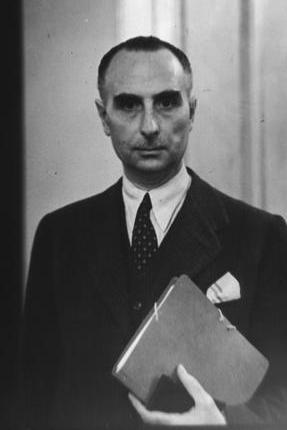
Mariano Puigdollers Oliver (1896–1984) was a Spanish academic, politician and civil servant. Between 1920 and 1966 he held various jurisprudence chairs in numerous Spanish universities, mostly in Valencia (1924-1936) and in Madrid (1940-1966); he is known among key representatives of Spanish Natural law of the 1940s and 1950s. Initially a conservative monarchist, in the mid-1930s he joined Carlism and briefly served as its regional Valencian jefe. Since the late 1930s he identified with the Franco regime. During early and mid-Francoism he was employed at key posts at Dirección General de Asuntos Ecclesiásticos department within the Ministry of Justice, at Consejo Superior de Protección de Menores and at Consejo Superior de Investigaciones Científicas. Between 1943 and 1965 he served in the Francoist Cortes. He is considered one of key officials implementing post-civil-war purges among the academics.

José María Lamamié de Clairac y Colina (1887-1956) was a Spanish politician. He supported the Traditionalist cause, until the early 1930s as an Integrist and afterwards as a Carlist. Among the former he headed the regional León branch, among the latter he rose to nationwide executive and became one of the party leaders in the late 1930s and the 1940s. In 1931-1936 he served 2 terms in the Cortes; in 1915-1920 he was member of the Salamanca ayuntamiento. In historiography he is known mostly as representative of Castilian terratenientes; as president of Confederación Nacional Católico-Agraria he tried to preserve the landowner-dominated rural regime, first opposing the Republican and later the Francoist designs.
Ya was a Spanish newspaper published by Editorial Católica from 1935 to 1996. Its trademark was bought for a website that launched in July 2008.
Vicente Álvarez-Buylla Lozana was a Spanish footballer, diplomat and writer. He had three brothers, Benito, Plácido and Adolfo, with the first two also being writers and the latter two also being footballers.
El Debate, is a Spanish online newspaper which launched in 2021. It styles itself as the heir to the El Debate newspaper, and is run by the same organisation, the Catholic Association of Propagandists.












